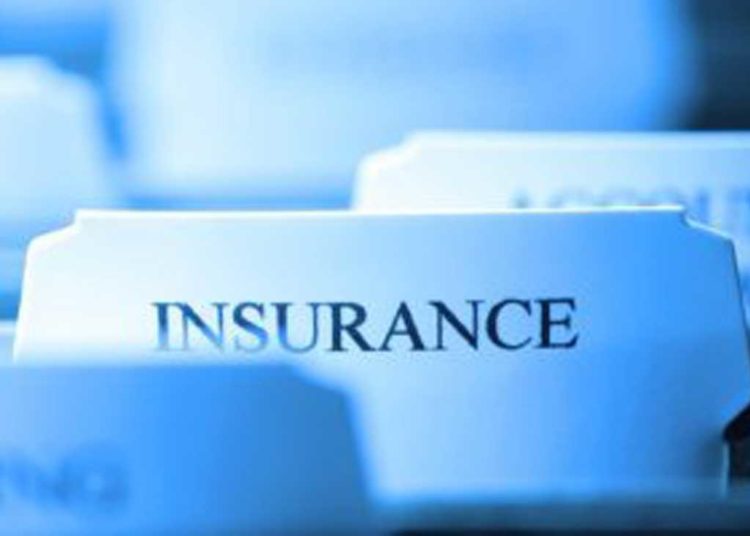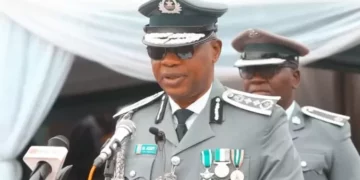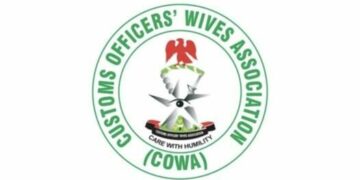According to the Federal Roads Safety Corps (FRSC) Act, any automobile on Nigerian roads must have at least third party motor insurance policy or comprehensive insurance coverage which goes for between five and 10 per cent of the value of a vehicle.
Before now, Third Party Vehicle Insurance comes at a fixed price of N5,000 for privately used saloons and SUVs, while commercially used vehicles are charged N7,500.
But about two weeks ago, the National Insurance Commission (NAICOM) increased third party rates by 200 per cent which is expected to commence on the first day of the new year.
Whether motorists would be able to comply with the new rates when their third party vehicle insurance certificate expires and due for renewal, it’s only a matter of time.
The NAICOM Move
Starting from next year, motorists who want to renew their insurance certificate or procure a fresh one will have to pay N15,000 as the new premium.
However, commercial vehicles will have to pay N20,000 as rate for third party vehicle insurance paper.
The new rates amount to about 200 per cent increase from N5,000 that was earlier being charged.
A circular from NAICOM attributed the new rates to hike in inflation rate, even though, the existing rate has being in use for about 19 years.
The circular titled: ‘The New Premium Rate for Motor Insurance’ with reference number NAICOM/DPR/CIR/46/2022 signed by the director, Policy & Regulations, Mr Leo Akah, disclosed that, “in pursuant to its function of approving premium rate of insurance companies under Section 7 of NAICOM Act 1997, and other extant laws, the Commission hereby issue this circular on the new motor insurance premium rate effective from January 1, 2023.
“The new motor insurance premium rate increase third party motor insurance to N15, 000 for private, while commercial is N20, 000. Goods and staff busses are to pay N20,000 while truck pays N100,000 even as tricycle has been mandated to pay N5,000 and motorcycle goes for N3,000.”
Similarly, with the premium increase, the Third Party Property Damage (TPPD) has equally increased from the usual N1 million to N3million and above, depending on the classes of automobile.
The regulatory body said, the TPPD, which is the limit of claims an insured can enjoy on the policy, noted that, TPPD on private vehicle is N3 million; Goods vehicle and staff bus go for N5 million, even as trucks/general cartage will now be assured at N3 million, adding that, special types is N5 million; tricycle N3 million and Sum assured for motorcycle is N1milion.
Moreover, NAICOM said, comprehensive insurance motor insurance premium rate shall not be less than 5 per cent of the sum insured after all rebates/ discounts.
Stressing that failure to comply with the circular will invite the wrath of the commission, it added that, “failure to comply with this circular shall attract appropriate regulatory sanction” The new rate is expected to be effective by 1st of January, 2023.
Implications
On his part Actuarial scientist and managing director, Achor Actuarial Services Limited, Mr. Pius Apere, said, the increase in third party motor insurance tariff to N15,000 from N5,000 is good for the industry, as the increase is long overdue but the full potentials may not be achieved as there are implications and challenges to be dealt with.
Stating that, through the new policy, Fake Motor insurance policies will be on the increase to avoid paying the full price, he added that, the price increase from N5,000 to N15,000 may be seen to be too high by the insuring public for the some reasons.
He listed the reason for the expected apathy to include; that NAICOM would base its decision on the price increase on statistical analysis as the claim rate and the actual amounts paid by insurers under the period of analysis.
“Secondly, that the Insureds normally do not make claims on third party motor policies even if there is an accident involving third parties. In other words, it is a free money for insurers. Moreover, basically, the insurers have been incurring underwriting costs and not claims expenses on third party motor policies,” he stated.
Believing the state or federal government motor licensing officials would still like to maintain the same proportion of income generated from third party motor registration where third party motor policy is part of motor registration package, he added that, if they were receiving N2,000, leaving N3,000 for insurers when the price was N5,000, then they would expect to receive at least N6,000 for the price being increased to N15,000.
Motorists To Pay N15,000 For Third Party Motor Insurance
“There will be an increase in the number of uninsured vehicles in the country because many motorists may not be able to afford to pay the new price having considered the economic conditions in the country. Insuring public may consider the timing of the price increase to be inappropriate due to the economic hardship facing the citizens of the country.
“Motorists would like to pass the increase to the passengers by increasing transport fares as a result of the new price on third party motor policy. Insurers would see the new price on third party motor insurance policy as a basis to review the prices of their non-compulsory insurance policies being designed by them e.g. Third party plus motor insurance policy in the market,” he pointed out.
Meanwhile, the deputy president, Nigerian Council of Registered Insurance Brokers (NCRIB), Mr. Tunde Oguntade said, the new premium and claims regime is one of the best things to have happened recently in the insurance industry as it would help address the soaring cost of repairing vehicles.
He implored motorists to consider the value created by the new regime which moved claims limit from N1 million to N3 million for private third vehicles and N5 million for commercial, stressing that, it has been difficult to repair most vehicles with N1 million owing to the high cost of spare parts.
Similarly, the national vice president, Association of Registered Insurance Agents of Nigeria (ARIAN), Kehinde Jegede, sees the introduction of new premium for auto insurance as a development that would aid better service and improvement of claim settlement for motor insurance policyholders.
He noted that, with the new rate and NAICOM’s monitoring, all the stakeholders shall have fair sharing.
“Worth mentioned, to say this development shall bring about the industry contribution to Gross Domestic Product (GDP) in a positive way,” he said.
He submitted that motorists with genuine policy shall have access to timely indemnity, as confident of the public on insurance will be reassured.
The present premium regime, he said, does give room for better service, adding that with the new introduction of premium rates and regulations, members of the public shall be better served.
Motorists Reactions
Mr. Afeez Ogunbo, who is a commercial bus driver between Lagos and Ogun state border towns, stated that, he has never heard of the proposed increase and that if it is true, then, government seems insensitive to the plight of the people.
“We are already being heavily taxed officially and unofficial by federal, state and local governments parastatals, including agbero, and law enforcement agencies. So, adding N10,000 to it is insensitive to our pain,” he said.
Another driver, Clement Prosper, said, what the underwriting firms needed to do was to educate Nigerians on insurance this festive period instead of the increase at a time the masses are struggling to feed.
He pointed out that, if at the prevailing N5,000 fee, Nigerians were cutting corners, how much more would it be in 2023 when they are being asked to pay more.
Prosper said the nation should prepare to witness a deluge of fake insurance certificates, which the regulator and players have over the years tried to address to attain increased revenue and a better deal for accident victims.
Conclusion
While the review is long overdue, especially, judging from the fact that the last review on third party motor insurance occurred 19 years ago, market observers believe NAICOM and insurance operators needs a minimum of three to six months to sensitive motorists on the new increase, instead of forcing it down the throat of the road users with little regards for their own planning and predicament.





